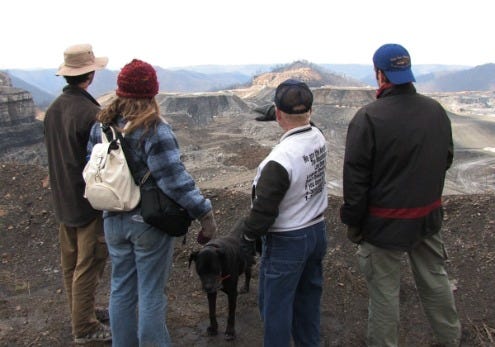YERT: Your Environmental Road Trip

A documentary feature that brings new meaning to the term “mockumentary,” “YERT: Your Environmental Road Trip,” is perhaps the most lighthearted documentary you’re likely to see.
It’s a bizarro “An Inconvenient Truth,” if Stephen Colbert kidnapped Al Gore and took the show on the road.
In 2007, documentarians Ben Evans and Mark Dixon, along with Ben’s wife, Julie, went around the country with the goal of saving all of their trash on a yearlong road trip. They travel around the country and, along the way, make some rather salient points about society, not just from an environmental perspective.
As they drive through Iowa, Ben endeavors to eat only corn and corn products, while his wife tries to eat no corn or corn products whatsoever. What they find is that Ben can eat, as they say, about 90% of the items in the grocery store, while his wife fails the first morning when she picks up her morning yogurt. (It has corn syrup and corn starch in it.)
Interspersed are environmental lessons about the vaunted heartland, whose cornfields are rife with degraded topsoil, and a port in Washington famous for its salmon fishing has only 5% of the salmon population it had 20 years ago due to overfishing.
“When you begin to see nature as a mentor rather than a warehouse, your emotions toward the rest of the natural world become a matter of respect,” says one expert.
When Ben and Julie announce they’re pregnant, their quest becomes endangered when she refuses to deny her “zygote” the food it makes her crave. We also get tutorials on solar energy in the desert, greenspace roofs in Chicago that reduce energy costs, and the Dobson House in Taos, New Mexico, a naturally sustained structure that heats and cools itself, uses solar and wind energy, and uses wastewater to grow its own crops.
There are some cautions, though — such as a visit to the shores of the Arctic Ocean that observes the ice caps melting and gets first-person accounts of how they’re melting — as well as a variety of environmental issues, how they’re caused, and, often, how they can be solved.
It’s a fun, informative, light documentary that talks about what the United States is doing, rather than what it's not. It’s a more hopeful, entertaining look at the environment and a breath of fresh air. This is the kind of documentary that can inspire real change and catch the eye of the people rather than be more white noise, as many of those doom-and-gloom documentaries have become.


